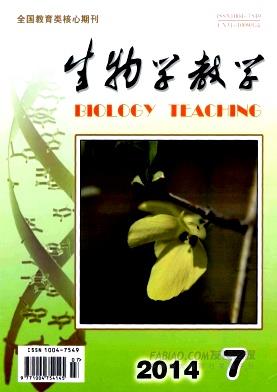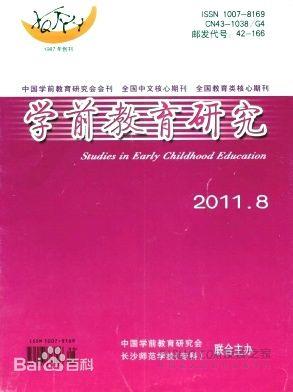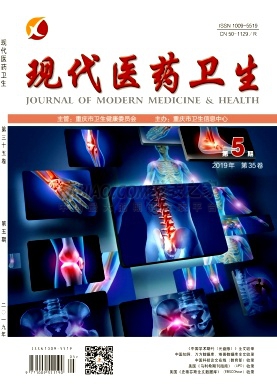我的心里藏着许多梦想,犹如天上的繁星。但有某些梦想最为闪耀。我想和大家分享的,也是大部分人想知道的,就是我为什么选择来中国生活与学习中文。 2011年,我在美国俄克拉荷马州立大学毕业,获得了新闻编辑专业学位。终于毕业了,我决定用一年的时间,去探索家乡外面的世界。我成了一个背包客,整个夏天在美国漂泊,最终到达太平洋海边的俄勒冈州,那里是北美洲的西疆。在它的另一边,是无边、清澈、海风吹拂、海浪拍击的太平洋,迎接着好奇而勇敢的探险者。当时正值夏天,天气温暖怡人。我在这里的生活过得悠游自在,白天,游山玩水,不亦乐乎,晚上累了,我就躺在灌木丛中和衣而卧,与大自然亲密接触。当钱慢慢花光后,我开始找工作。问题是,当时美国遇到经济危机,工作不好找,尤其在俄勒冈的工作机会很少。我的旅途看来要结束了,但实际上,我并不知道,旅途其实才刚刚开始。 我收到了我朋友从中国发来的一封电子邮件。他的中文名字叫张家乐,在中国烟台市的一所国际学校当老师,他推荐我到那里做英语外教。我立即给那边的国际专家Wallace发了一封电子邮件。让我惊喜的是,第二天,我收到了他的回复,邮件附有一个合同。这是我生活中的大转折:在世界的另一边,在古老的东方古国——中国,我得到了大学毕业之后的第一份工作。三个星期之后,我获得新的美国护照,拿到了中国签证,经历14个小时穿越太平洋上的飞行,抵达中国。在山东工商学院,我开始了“外教”生涯。 刚到烟台的时候,我头发又长又密,脸上留着稀稀拉拉的胡子,皮肤因夏天的旅行晒黑了。我的学生们都亲热地称我为“船长”——因为我长得很像《加勒比海盗》系列电影里的杰克船长。一开始,我好像在一条职业的弯路上走。对我而言,去中国的确是个大冒险,就如对任何一个第一次离开美洲的年轻人一样,充满奇妙。我的计划在不断地变化,每次我都会努力抓住各种机会。我逐渐认识到,我得到的会比失去的更多。但是,语言障碍一度让我很纠结。我想用汉语跟中国人沟通,想知道他们实际上的生活过得如何,想要跟他们拥有深厚的友谊,而不是那种停留在表面的友谊。幸运的是,新的生活给了我一个机会,这是个关键的细节,它为我打开学习中文的大门。 作为一个英语外教,学校让我和留学生一起上汉语课。最幸运的一点就是我的学习全都是免费的——唯一要买的东西就是课本,因此我抓住了每一个机会学习中文。当时我既是老师又是学生,不是在教室里教英语,就是在教室里学习汉语。2013年12月,经过两年半的汉语学习后,我参加了HSK五级考试,结果让我惊呆了——我的分数竟然刚好及格了!虽然我对中文有浓厚的兴趣,但我还是很喜欢当老师,很舍不得教学这个行业,所以我决定追求另外一个目标——攻读汉语国际教育硕士学位。2014年秋季,我得到了我家乡的俄克拉荷马大学孔子学院的推荐,申请到了孔子学院奖学金,来到中国传媒大学读研。让我感动的是,虽然我从来没有在孔子学院学过汉语,可是他们还是很热情地将我推荐给国家汉办——这真是上帝的祝福。 开始读研究生之前的那个夏天,我先回国看望在俄克拉荷马州的亲人。缘分使然,我在那边碰到了一群汉语老师,她们帮我起了一个新中文名字:申一鸣。我已经给自己起了个中文姓“申”因为它跟我英文姓Shinn谐音,并且这个发音在汉语不存在。通过一段很长的讨论之后,她们决定了给我起“一鸣”这个名字,来自一个成语,“一鸣惊人”。(事实上,她们选了这个名字是因为我们刚认识,并且我吹口哨的技巧让人惊叹。)得到这个名字的祝福之后,我来到北京,掀开了人生的新篇章。目前,作为一个二年级的研究生,我已经通过了HSK六级考试,我的毕业论文选题是关于美国俄克拉荷马州的孔子学院对于该州中文教育项目的影响,选题报告得到了专家们的一致肯定,我将回到家乡,根据选题,展开调查研究。希望我能顺利获得硕士学位,并且顺利成章地成为一位专业的汉语老师。 中国的生活经历教我怎么度过生活中的酸甜苦辣、如何抓住成长中的每一次机会。四年来的汉语学习让我开阔眼界,而且我的品质和思想也有很大提升。回头看,在中国的这段时光算是我人生中最令人振奋并且满载而归的。能够说一口流利的汉语与识文断字让我前途无量。关于梦想的问题,我发现,实现梦想的形式并不是固定的,而是很灵活的;它像摆在我前面的一座灯塔,指出大概的方向,但不能帮我走出每一步。我童年的梦想在我成年后不一定实现;而我现在所实现的梦想,也不一定让我更幸福。毕竟,我不是一个怕走弯路的人。无论生活中的挫折引向哪里,一个平地、低谷或者山顶,我都会勇敢尝试、倾心体验。 导师寄语: 申一鸣(美国)是我指导的一位汉语国际教育硕士,在中国的四年,他出色地完成了从英文教师到汉语国际教育硕士的角色转换。他擅长音乐,由他独立完成词曲创作的中文歌曲《留学在中传》,在中国传媒大学留学生中广为传唱。对他而言,最具体的中国梦就是努力学习汉语和中国文化,成为一名中美文化交流的践行者。 As in finite stars shimmering in a midnight sky, so are the desires of my heart. Yet some stars blaze more brightly than others. What I will tell you, and what most people really want to know, is why I came to China and why I chose to study Chinese. In 2011, I graduated from Oklahoma State University with a bachelor's degree in news-editorial journalism. Finally set free from the education system, I decided to take a gap year and explore the world outside Oklahoma. That summer I went on the bum, backpacking across the United States until I ended up in Oregon on the coast of the Paci fic Ocean — the western boundary of North America, that immense, glistening, white crested body of water, beyond which lay new worlds and adventures. It was summertime and the weather was warm and the people friendly. During the daytime I would recycle plastic bottles for pocket change, and I would "couch surf" or sleep outside under bushes at night. Life was carefree until I started running out of money, so I began searching for work. But the US was in the midst of a financial crisis and there were few jobs available, especially in Oregon. Alas, it seemed as though my journey had come to an end; it was time for me turn back and go home. Little did I know, my journey hadn't stopped there at the ocean. Indeed, it had only just begun. At that moment of uncertainty, I received an email from my friend Caleb Kirby in China. He was a teacher at an international school in Yantai, a developing port city on the coast of the Yellow Sea in eastern China. He said his contract was ending and that he was moving to a local university to become a foreign English teacher. He said there was a good chance that he could get me a job there, too. All I had to do was send an email to a man named" Wallace"—the foreign specialist at Shandong Institute of Business and Technology. So that's what I did. To my astonishment, the next day I received his reply — a contract. This was the great turning point of my journey: I was employed on the other side of the world. Three weeks later I had a newly issued US passport, a Chinese visa and was on a plane taking a 14-hour flight across the Paci fic Ocean to China. I taught English for three school years at SDIBT. When I first arrived in Yantai, I had long oily hair and a scraggly beard, and my skin was tanned from summertime travels. My students affectionately called me "Captain," after Captain Jack Sparrow of the movie series "Pirates of the Caribbean." At the beginning, teaching English seemed a detour from my career path of journalism. Going to China was a risk, an adventure, as it is for any young person leaving America for the first time, full of curiosity and wonder. My plans were ever changing and I was taking opportunities as they presented themselves. But I quickly found that I had more to gain than I had to lose. The language barrier both fascinated and frustrated me. I wanted to communicate with Chinese people in their own language. I wanted to know what their lives were really like. I wanted to make deep and real friendships, not acquaintances built on surface-level conversations of limited language ability. Fortunately, my new circumstances provided a unique opportunity, the key factor, which would open for me the door of Chinese language study. As a foreign English teacher at the university, I was allowed to attend Chinese language classes. The best thing about the deal was that it was free — I didn't have to pay for anything except textbooks. So I took every chance I could to attend classes and learn this new language. I was part teacher, part student; when I wasn't in class teaching English, I was in class studying Chinese. In December of 2013, after two and a half years of study, I took the HSK 5. To my surprise, I passed the exam by just a few points! My interest in Chinese language had outgrown my desire to teach English, and I decided to pursue a Master of Teaching Chinese to Speakers of Other Languages. In the spring of 2014, I applied for a scholarship through the Confucius Institute at the University of Oklahoma to enter the master's program at Communication University of China. OUCI was extremely generous to recommend me to Hanban for the scholarship, despite my still being in Yantai and having never studied at a Confucius Institute — it was the sheer grace of God. That summer before my graduate studies began, I went home to visit my family in Oklahoma. There, I met a group of Chinese teachers who helped me choose a new Chinese name. I had already chosen the surname "Shen" because it sounds similar to my English Surname, Shinn -—a pronunciation that doesn't exist in Chinese. After a long discussion, the teachers decided on the name "Yiming," which comes from the Chinese proverb, "As soon as the quiet bird sings, it becomes famous." (In fact, they chose this name because they had just met me and were impressed with my whistling.) Blessed with this name, I moved to Beijing to begin a new chapter of my life. Now in my second year of the graduate program at CUC, I've passed the HSK 6 and am just eight months away from defending my thesis, earning my master’s degree and becoming a trained Chinese teacher. China has taught me to take life as it comes and to seize each opportunity to improve myself. Learning Chinese has opened my mind to new ways of seeing the world, and the past four years have been a time of growth and maturity for both my mind and character. Looking back, these have been the most exciting, challenging and rewarding years of my youth. Having become both fluent and literate in one of the most challenging languages, I am facing a future of untold possibilities — of fortunes and failures. What I've learned about dreams is that they are malleable, not set in stone; beacons of light to point you in a general direction, but not to guide your every step. The dream I conceived as a boy might not be the same dream I will realize as a man, and achieving one dream instead of another may not bring me greater happiness. After all I’m a man who likes taking detours, the backstreets, the road less travelled. Each turn I take in the winding path of life leads to another pasture, valley or hilltop. And I want to experience them all. A Message from Academic Advisor:I served as academic advisor for Shen Yiming (USA), a Master of Teaching Chinese to Speakers of Other Languages. In his four years in China, he beautifully completed the transition from English instructor to Master of Teaching Chinese to Speakers of Other Languages. His talent with music made his original Chineselanguage song “Liu Xue Zai Zhong Chuan”(Studying Abroad at Communication University of China) a hit around campus. His China dream, as far as I know, is to learn as much about Chinese and Chinese culture as he can, and become a facilitator of Sino-American cultural exchange. 我的心里藏着许多梦想,犹如天上的繁星。但有某些梦想最为闪耀。我想和大家分享的,也是大部分人想知道的,就是我为什么选择来中国生活与学习中文。 2011年,我在美国俄克拉荷马州立大学毕业,获得了新闻编辑专业学位。终于毕业了,我决定用一年的时间,去探索家乡外面的世界。我成了一个背包客,整个夏天在美国漂泊,最终到达太平洋海边的俄勒冈州,那里是北美洲的西疆。在它的另一边,是无边、清澈、海风吹拂、海浪拍击的太平洋,迎接着好奇而勇敢的探险者。当时正值夏天,天气温暖怡人。我在这里的生活过得悠游自在,白天,游山玩水,不亦乐乎,晚上累了,我就躺在灌木丛中和衣而卧,与大自然亲密接触。当钱慢慢花光后,我开始找工作。问题是,当时美国遇到经济危机,工作不好找,尤其在俄勒冈的工作机会很少。我的旅途看来要结束了,但实际上,我并不知道,旅途其实才刚刚开始。 我收到了我朋友从中国发来的一封电子邮件。他的中文名字叫张家乐,在中国烟台市的一所国际学校当老师,他推荐我到那里做英语外教。我立即给那边的国际专家Wallace发了一封电子邮件。让我惊喜的是,第二天,我收到了他的回复,邮件附有一个合同。这是我生活中的大转折:在世界的另一边,在古老的东方古国——中国,我得到了大学毕业之后的第一份工作。三个星期之后,我获得新的美国护照,拿到了中国签证,经历14个小时穿越太平洋上的飞行,抵达中国。在山东工商学院,我开始了“外教”生涯。 刚到烟台的时候,我头发又长又密,脸上留着稀稀拉拉的胡子,皮肤因夏天的旅行晒黑了。我的学生们都亲热地称我为“船长”——因为我长得很像《加勒比海盗》系列电影里的杰克船长。一开始,我好像在一条职业的弯路上走。对我而言,去中国的确是个大冒险,就如对任何一个第一次离开美洲的年轻人一样,充满奇妙。我的计划在不断地变化,每次我都会努力抓住各种机会。我逐渐认识到,我得到的会比失去的更多。但是,语言障碍一度让我很纠结。我想用汉语跟中国人沟通,想知道他们实际上的生活过得如何,想要跟他们拥有深厚的友谊,而不是那种停留在表面的友谊。幸运的是,新的生活给了我一个机会,这是个关键的细节,它为我打开学习中文的大门。 作为一个英语外教,学校让我和留学生一起上汉语课。最幸运的一点就是我的学习全都是免费的——唯一要买的东西就是课本,因此我抓住了每一个机会学习中文。当时我既是老师又是学生,不是在教室里教英语,就是在教室里学习汉语。2013年12月,经过两年半的汉语学习后,我参加了HSK五级考试,结果让我惊呆了——我的分数竟然刚好及格了!虽然我对中文有浓厚的兴趣,但我还是很喜欢当老师,很舍不得教学这个行业,所以我决定追求另外一个目标——攻读汉语国际教育硕士学位。2014年秋季,我得到了我家乡的俄克拉荷马大学孔子学院的推荐,申请到了孔子学院奖学金,来到中国传媒大学读研。让我感动的是,虽然我从来没有在孔子学院学过汉语,可是他们还是很热情地将我推荐给国家汉办——这真是上帝的祝福。 开始读研究生之前的那个夏天,我先回国看望在俄克拉荷马州的亲人。缘分使然,我在那边碰到了一群汉语老师,她们帮我起了一个新中文名字:申一鸣。我已经给自己起了个中文姓“申”因为它跟我英文姓Shinn谐音,并且这个发音在汉语不存在。通过一段很长的讨论之后,她们决定了给我起“一鸣”这个名字,来自一个成语,“一鸣惊人”。(事实上,她们选了这个名字是因为我们刚认识,并且我吹口哨的技巧让人惊叹。)得到这个名字的祝福之后,我来到北京,掀开了人生的新篇章。目前,作为一个二年级的研究生,我已经通过了HSK六级考试,我的毕业论文选题是关于美国俄克拉荷马州的孔子学院对于该州中文教育项目的影响,选题报告得到了专家们的一致肯定,我将回到家乡,根据选题,展开调查研究。希望我能顺利获得硕士学位,并且顺利成章地成为一位专业的汉语老师。 中国的生活经历教我怎么度过生活中的酸甜苦辣、如何抓住成长中的每一次机会。四年来的汉语学习让我开阔眼界,而且我的品质和思想也有很大提升。回头看,在中国的这段时光算是我人生中最令人振奋并且满载而归的。能够说一口流利的汉语与识文断字让我前途无量。关于梦想的问题,我发现,实现梦想的形式并不是固定的,而是很灵活的;它像摆在我前面的一座灯塔,指出大概的方向,但不能帮我走出每一步。我童年的梦想在我成年后不一定实现;而我现在所实现的梦想,也不一定让我更幸福。毕竟,我不是一个怕走弯路的人。无论生活中的挫折引向哪里,一个平地、低谷或者山顶,我都会勇敢尝试、倾心体验。 导师寄语: 申一鸣(美国)是我指导的一位汉语国际教育硕士,在中国的四年,他出色地完成了从英文教师到汉语国际教育硕士的角色转换。他擅长音乐,由他独立完成词曲创作的中文歌曲《留学在中传》,在中国传媒大学留学生中广为传唱。对他而言,最具体的中国梦就是努力学习汉语和中国文化,成为一名中美文化交流的践行者。 As in finite stars shimmering in a midnight sky, so are the desires of my heart. Yet some stars blaze more brightly than others. What I will tell you, and what most people really want to know, is why I came to China and why I chose to study Chinese. In 2011, I graduated from Oklahoma State University with a bachelor's degree in news-editorial journalism. Finally set free from the education system, I decided to take a gap year and explore the world outside Oklahoma. That summer I went on the bum, backpacking across the United States until I ended up in Oregon on the coast of the Paci fic Ocean — the western boundary of North America, that immense, glistening, white crested body of water, beyond which lay new worlds and adventures. It was summertime and the weather was warm and the people friendly. During the daytime I would recycle plastic bottles for pocket change, and I would "couch surf" or sleep outside under bushes at night. Life was carefree until I started running out of money, so I began searching for work. But the US was in the midst of a financial crisis and there were few jobs available, especially in Oregon. Alas, it seemed as though my journey had come to an end; it was time for me turn back and go home. Little did I know, my journey hadn't stopped there at the ocean. Indeed, it had only just begun. At that moment of uncertainty, I received an email from my friend Caleb Kirby in China. He was a teacher at an international school in Yantai, a developing port city on the coast of the Yellow Sea in eastern China. He said his contract was ending and that he was moving to a local university to become a foreign English teacher. He said there was a good chance that he could get me a job there, too. All I had to do was send an email to a man named" Wallace"—the foreign specialist at Shandong Institute of Business and Technology. So that's what I did. To my astonishment, the next day I received his reply — a contract. This was the great turning point of my journey: I was employed on the other side of the world. Three weeks later I had a newly issued US passport, a Chinese visa and was on a plane taking a 14-hour flight across the Paci fic Ocean to China. I taught English for three school years at SDIBT. When I first arrived in Yantai, I had long oily hair and a scraggly beard, and my skin was tanned from summertime travels. My students affectionately called me "Captain," after Captain Jack Sparrow of the movie series "Pirates of the Caribbean." At the beginning, teaching English seemed a detour from my career path of journalism. Going to China was a risk, an adventure, as it is for any young person leaving America for the first time, full of curiosity and wonder. My plans were ever changing and I was taking opportunities as they presented themselves. But I quickly found that I had more to gain than I had to lose. The language barrier both fascinated and frustrated me. I wanted to communicate with Chinese people in their own language. I wanted to know what their lives were really like. I wanted to make deep and real friendships, not acquaintances built on surface-level conversations of limited language ability. Fortunately, my new circumstances provided a unique opportunity, the key factor, which would open for me the door of Chinese language study. As a foreign English teacher at the university, I was allowed to attend Chinese language classes. The best thing about the deal was that it was free — I didn't have to pay for anything except textbooks. So I took every chance I could to attend classes and learn this new language. I was part teacher, part student; when I wasn't in class teaching English, I was in class studying Chinese. In December of 2013, after two and a half years of study, I took the HSK 5. To my surprise, I passed the exam by just a few points! My interest in Chinese language had outgrown my desire to teach English, and I decided to pursue a Master of Teaching Chinese to Speakers of Other Languages. In the spring of 2014, I applied for a scholarship through the Confucius Institute at the University of Oklahoma to enter the master's program at Communication University of China. OUCI was extremely generous to recommend me to Hanban for the scholarship, despite my still being in Yantai and having never studied at a Confucius Institute — it was the sheer grace of God. That summer before my graduate studies began, I went home to visit my family in Oklahoma. There, I met a group of Chinese teachers who helped me choose a new Chinese name. I had already chosen the surname "Shen" because it sounds similar to my English Surname, Shinn -—a pronunciation that doesn't exist in Chinese. After a long discussion, the teachers decided on the name "Yiming," which comes from the Chinese proverb, "As soon as the quiet bird sings, it becomes famous." (In fact, they chose this name because they had just met me and were impressed with my whistling.) Blessed with this name, I moved to Beijing to begin a new chapter of my life. Now in my second year of the graduate program at CUC, I've passed the HSK 6 and am just eight months away from defending my thesis, earning my master’s degree and becoming a trained Chinese teacher. China has taught me to take life as it comes and to seize each opportunity to improve myself. Learning Chinese has opened my mind to new ways of seeing the world, and the past four years have been a time of growth and maturity for both my mind and character. Looking back, these have been the most exciting, challenging and rewarding years of my youth. Having become both fluent and literate in one of the most challenging languages, I am facing a future of untold possibilities — of fortunes and failures. What I've learned about dreams is that they are malleable, not set in stone; beacons of light to point you in a general direction, but not to guide your every step. The dream I conceived as a boy might not be the same dream I will realize as a man, and achieving one dream instead of another may not bring me greater happiness. After all I’m a man who likes taking detours, the backstreets, the road less travelled. Each turn I take in the winding path of life leads to another pasture, valley or hilltop. And I want to experience them all. A Message from Academic Advisor:I served as academic advisor for Shen Yiming (USA), a Master of Teaching Chinese to Speakers of Other Languages. In his four years in China, he beautifully completed the transition from English instructor to Master of Teaching Chinese to Speakers of Other Languages. His talent with music made his original Chineselanguage song “Liu Xue Zai Zhong Chuan”(Studying Abroad at Communication University of China) a hit around campus. His China dream, as far as I know, is to learn as much about Chinese and Chinese culture as he can, and become a facilitator of Sino-American cultural exchange.
文章来源:山东工商学院学报 网址: http://sdgsxyxb.400zhicheng.com/lunwen/itemid-29815.shtml
上一篇: 中国会计学会2017年学术年会在山东烟台召开
下一篇: 轻工业手工业论文_中国家居智能制造技术研究与应用进展





